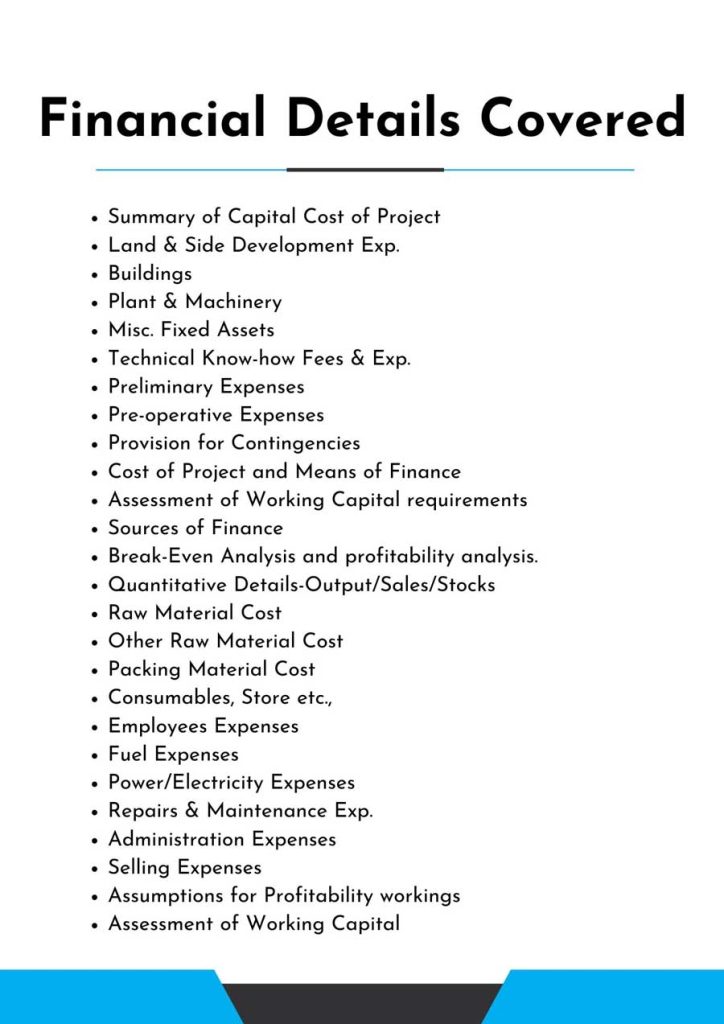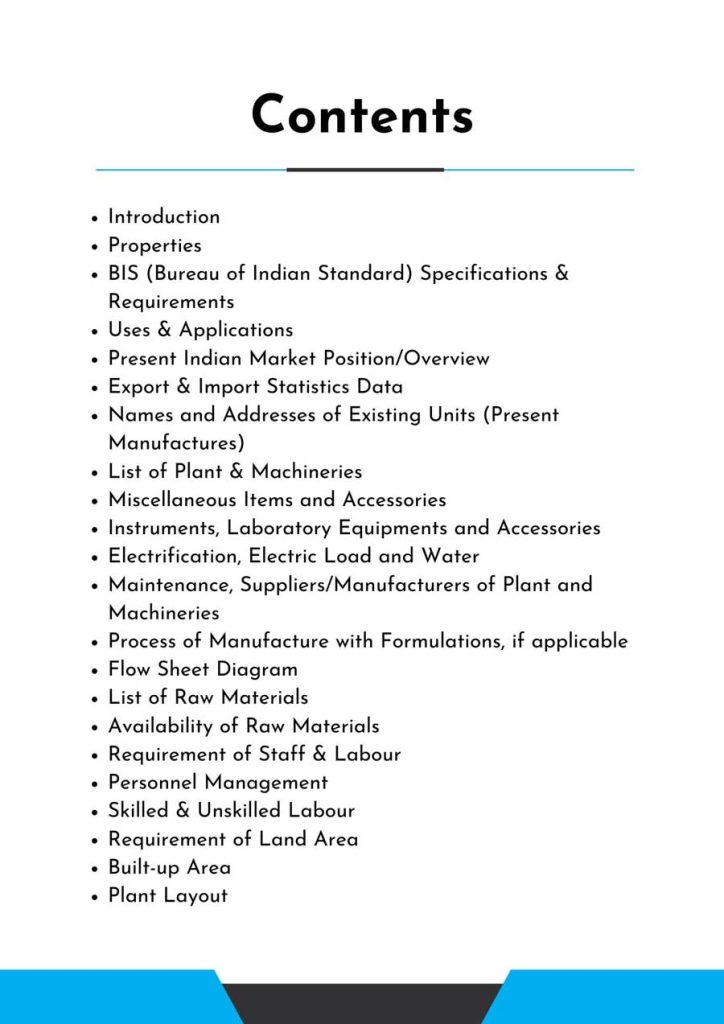Feasibility Report On Mineral Water Plant
A mineral water plant purifies and bottles water from natural sources, ensuring it’s free of contaminants. It involves processes like filtration, reverse osmosis, and UV sterilization, followed by packaging in bottles for consumer distribution.
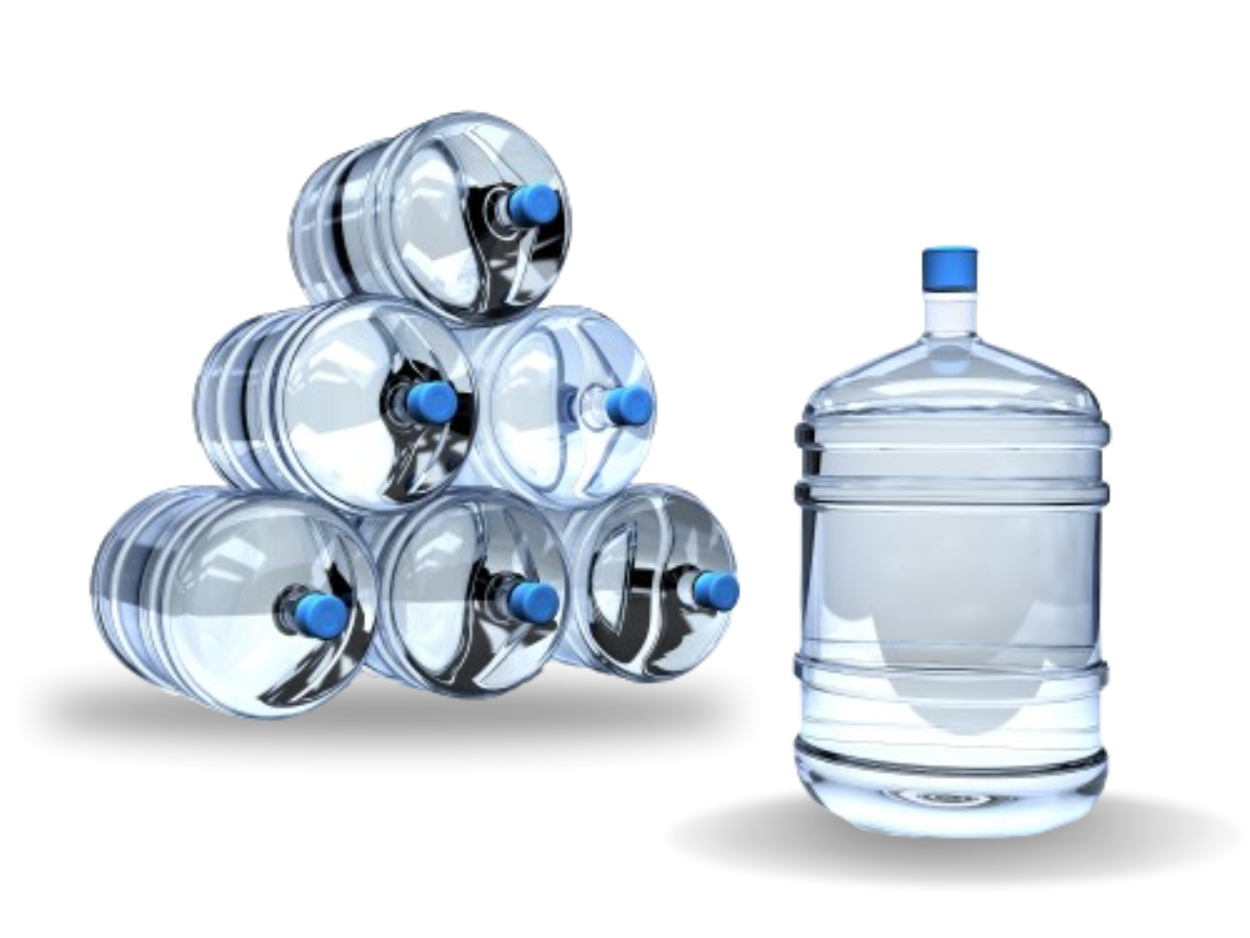
Introduction
Feasibility Report For Mineral Water Plant.
Mineral water is defined as water with a high concentration of dissolved minerals or gases. Natural spring water contains significant levels of calcium carbonate, magnesium sulphate, potassium, and sodium sulphate. It can also be injected with gases like carbon dioxide or hydrogen sulphide. To make mineral water, distilled water is artificially aerated with carbon dioxide or salts. The mineral concentration of natural and manufactured mineral water varies widely, and in some circumstances is lower than that of standard tap water.
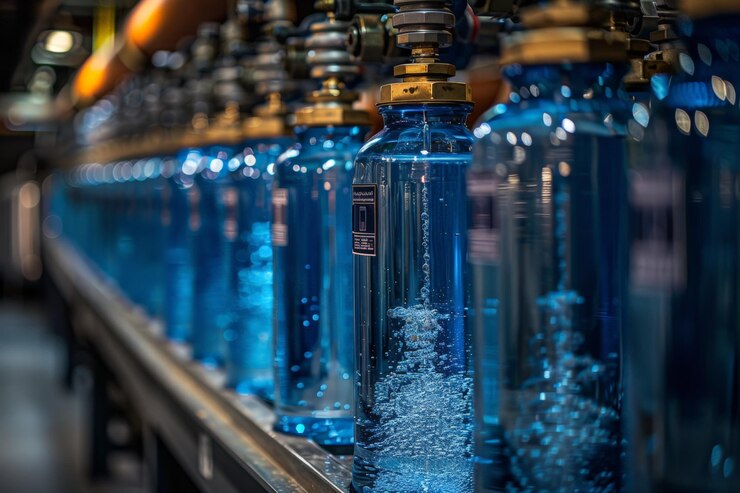
The mineral water plant process involves diverting and aerating water to remove gasses and impurities, followed by primary filtration with quartz sand and activated charcoal. The water is then cleaned with ozone or UV radiation. Finally, it is packaged into sterile containers, checked, and stored.
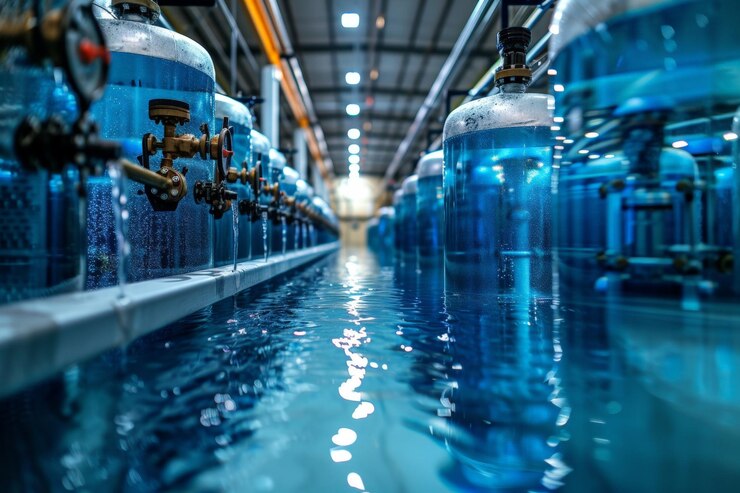
Mineral water plants need water from natural sources like mountains and springs. Such water contains minerals that offer a variety of health benefits to people. Mineral water usually contains calcium, sodium, potassium, magnesium, and other minerals. Demand for mineral water has reached an all-time high. Many individuals today prefer mineral water over plain potable water because it is more clean and sanitary.
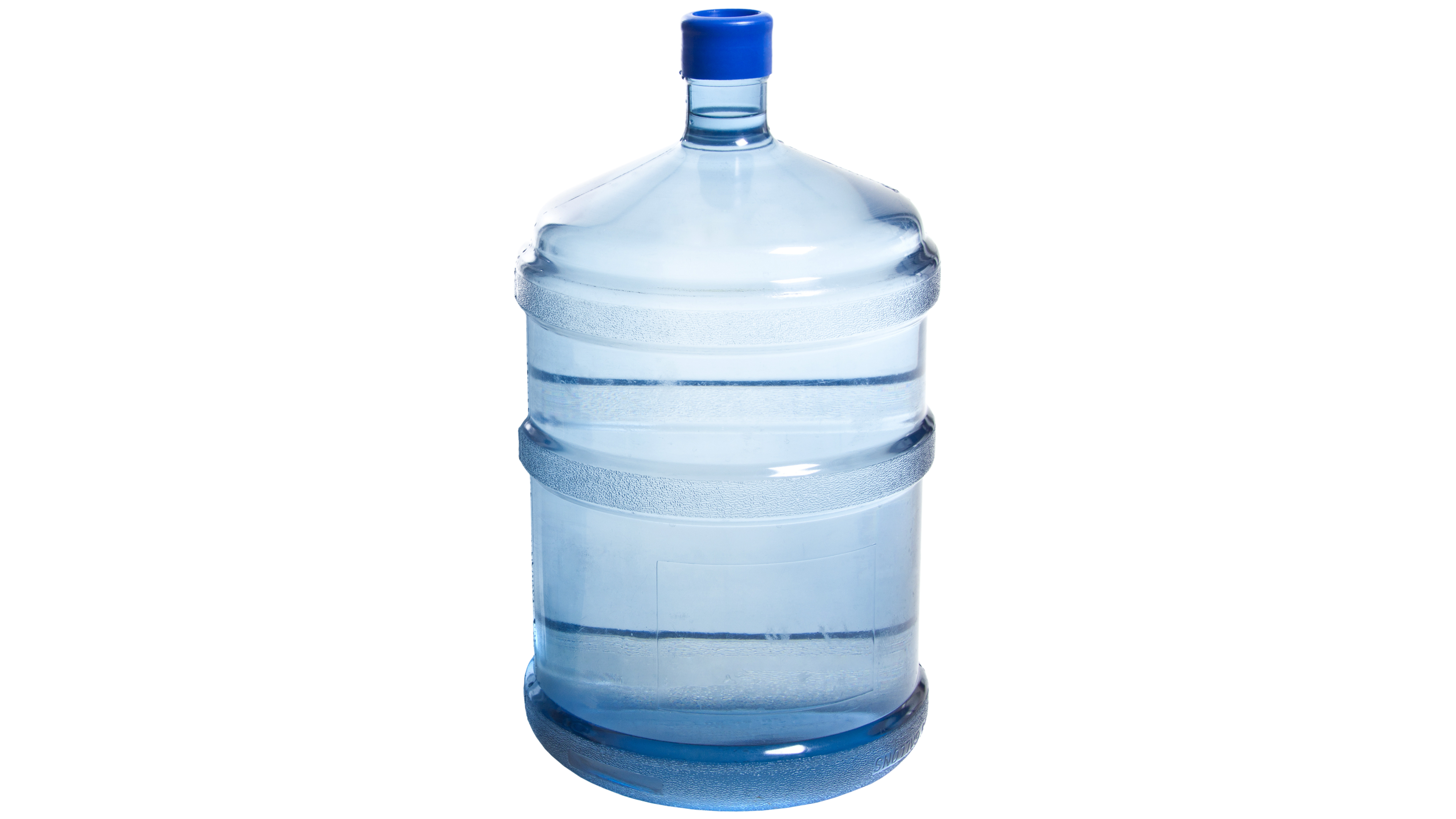
Feasibility Report Sample On Mineral Water Plant
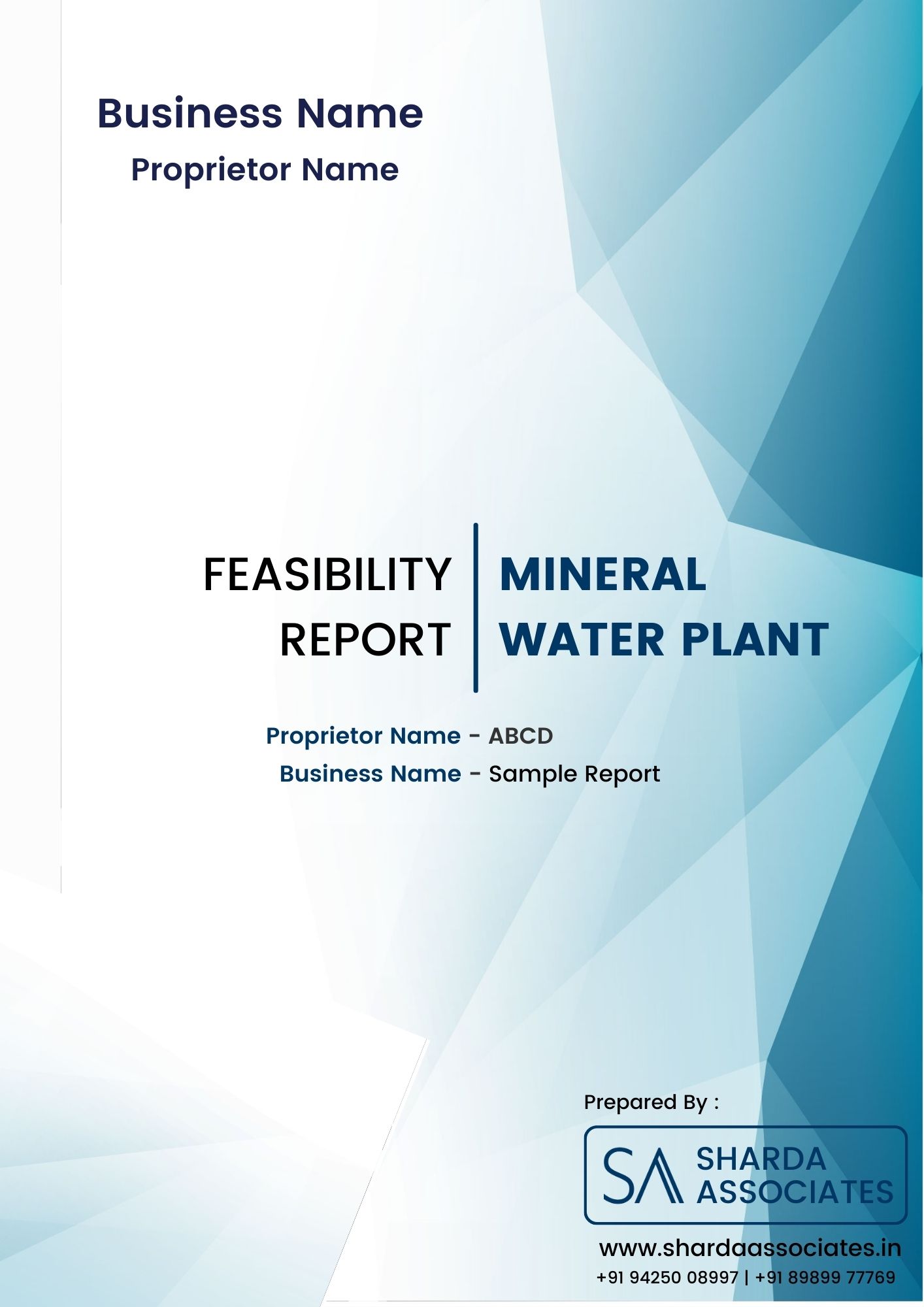
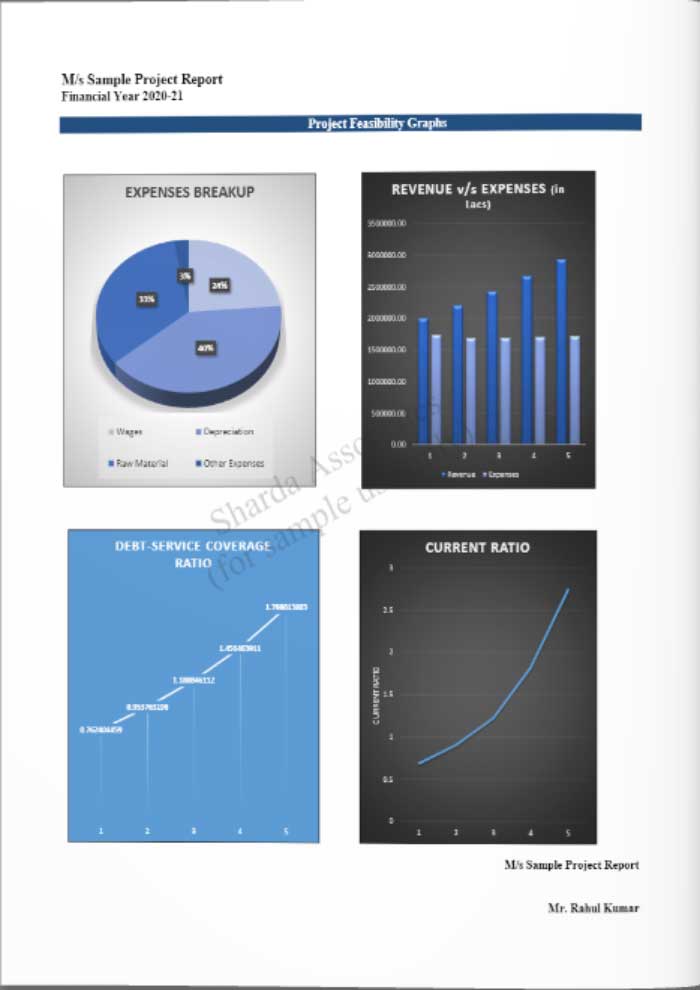
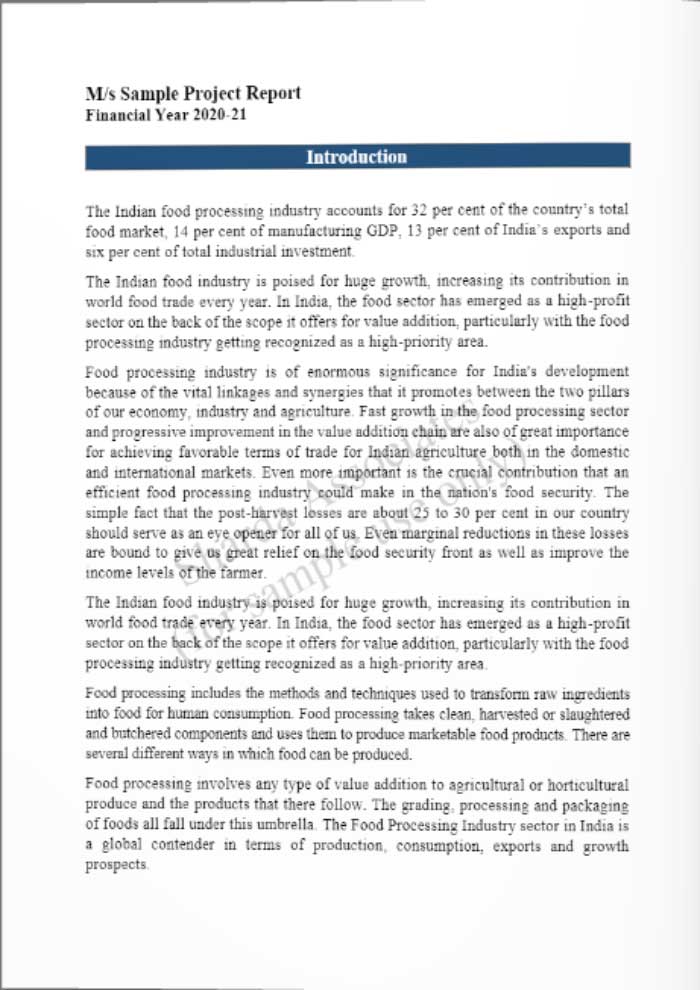
Market Strategy For Mineral Water Plant
The global mineral water bottle market is predicted to be worth USD 283 billion in 2021, rising to USD 308.1 billion in 2022 and USD 509.2 billion by 2030, with a 7% CAGR over the forecast period.
The rising demand for mineral water affects the entire supply chain, putting additional effort on the existing plant to improve output. This increased demand is driving new enterprises to open mineral water facilities across India. The beauty of this business concept is that it does not require a large initial investment while offering long-term success to the owner.
The demand for clean drinking water is growing due to its scarcity in some locations, which is boosting product sales and market expansion. According to the International Bottled Water Association (IBWA), companies have boosted their manufacturing capacity to satisfy rising demand for bottled water in 2020. This entails boosting bottling capacity, obtaining additional production and packaging materials, and consulting with merchants about demand. As individuals focus their health and fitness, nutrient-fortified water is becoming increasingly popular.
